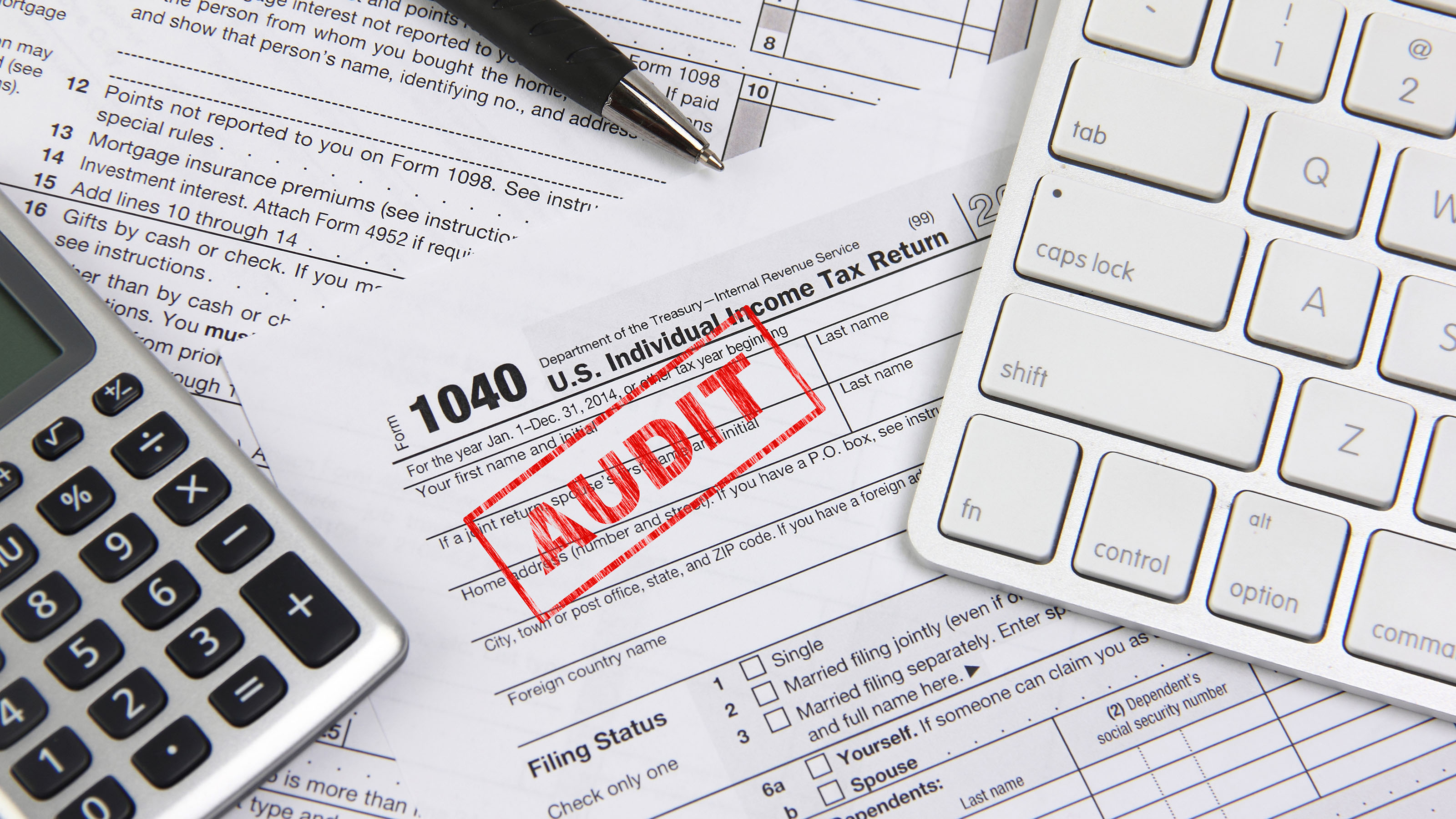The Benefits of Being Your Own Boss
Self-employment comes with extra flexibility—a trait that millennials prize—but it can also complicate your financial life.


Profit and prosper with the best of Kiplinger's advice on investing, taxes, retirement, personal finance and much more. Delivered daily. Enter your email in the box and click Sign Me Up.
You are now subscribed
Your newsletter sign-up was successful
Want to add more newsletters?

Delivered daily
Kiplinger Today
Profit and prosper with the best of Kiplinger's advice on investing, taxes, retirement, personal finance and much more delivered daily. Smart money moves start here.

Sent five days a week
Kiplinger A Step Ahead
Get practical help to make better financial decisions in your everyday life, from spending to savings on top deals.

Delivered daily
Kiplinger Closing Bell
Get today's biggest financial and investing headlines delivered to your inbox every day the U.S. stock market is open.

Sent twice a week
Kiplinger Adviser Intel
Financial pros across the country share best practices and fresh tactics to preserve and grow your wealth.

Delivered weekly
Kiplinger Tax Tips
Trim your federal and state tax bills with practical tax-planning and tax-cutting strategies.

Sent twice a week
Kiplinger Retirement Tips
Your twice-a-week guide to planning and enjoying a financially secure and richly rewarding retirement

Sent bimonthly.
Kiplinger Adviser Angle
Insights for advisers, wealth managers and other financial professionals.

Sent twice a week
Kiplinger Investing Weekly
Your twice-a-week roundup of promising stocks, funds, companies and industries you should consider, ones you should avoid, and why.

Sent weekly for six weeks
Kiplinger Invest for Retirement
Your step-by-step six-part series on how to invest for retirement, from devising a successful strategy to exactly which investments to choose.
When I moved from Washington, D.C., to Las Vegas a few summers ago, I had to adjust to more than the scorching desert climate and the presence of slot machines at my local grocery store. My status with Kiplinger also changed from employee to contractor. In other words, I became self-employed.
A recent report from accounting-software provider FreshBooks predicts that the number of self-employed Americans could triple by 2020, with millennials leading the way. Technological advancements make it easier than ever to work remotely or start a business, and as your own boss, you have plenty of opportunity to shape a fulfilling career.
Self-employment comes with extra flexibility—a trait that millennials prize—but it can also make your financial life more complicated. My husband is an Air Force pilot, and my ability to keep working while I move around the country with him (we’re now in Alamogordo, N.M.) is invaluable. But I’ve faced new challenges in a variety of financial tasks.
From just $107.88 $24.99 for Kiplinger Personal Finance
Become a smarter, better informed investor. Subscribe from just $107.88 $24.99, plus get up to 4 Special Issues

Sign up for Kiplinger’s Free Newsletters
Profit and prosper with the best of expert advice on investing, taxes, retirement, personal finance and more - straight to your e-mail.
Profit and prosper with the best of expert advice - straight to your e-mail.
Tackling taxes and income. The new tax law makes working for yourself more attractive. Now, owners of pass-through businesses—basically, ones that aren’t C-corporations, subject to corporate tax—can get a 20% deduction against business income if their taxable income falls below specified limits.
But it’s up to you to ensure that the IRS is getting its share of your income (you’ll need to pay your state, too, if it collects income tax). Estimated federal tax payments are due on four dates throughout the year; you can use Form 1040-ES to calculate how much you owe. Don’t forget about the self-employment tax: 12.4% of your first $128,400 of net earnings goes to Social Security, and 2.9% of your net earnings goes to Medicare, although you get to write off half of what you pay.
If you have a regular job with an employer plus a side gig for which an employer does not withhold tax—say, driving for Uber—you’ll need to pay any tax due on those earnings, too.
Make sure you’re taking advantage of other tax deductions for business owners. I use a room in my home exclusively and regularly as an office, so I can deduct a portion of my mortgage interest (rent payments are also deductible), home insurance, utility bills and other expenses. Another deduction allows you to write off expenses for business use of your car. Keep detailed records, and save receipts, bills and other documentation. If your income is unpredictable, it’s important to map out your regular expenses and have a substantial savings account so you can pay them in lean months.
Subbing in benefits. Without an employer to provide benefits, you’ll have to fill the gaps. A Roth IRA is a good place to start. Roth contributions are not tax-deductible, but you’ll pay no tax on withdrawals in retirement. The maximum Roth IRA contribution for 2018 is $5,500 for those younger than 50 whose income falls under certain limits. You can also use retirement accounts designed for the self-employed. I have a SEP (simplified employee pension) IRA that allows me to save the lesser of $55,000 or 20% of my net self-employment income for 2018. You may be able to save a greater portion of your income in a solo 401(k), but setting it up and managing it can be more complex.
If you’re married and your spouse has health insurance through an employer, joining his or her policy may be the best move. Otherwise, look for an individual health policy. You may be eligible to deduct the premiums on your tax return, too. You can shop for plans and speak with insurance agents free at ehealthinsurance.com.
SEE ALSO:
Retirement Savings Plans for the Self-Employed
p>
Profit and prosper with the best of Kiplinger's advice on investing, taxes, retirement, personal finance and much more. Delivered daily. Enter your email in the box and click Sign Me Up.

Lisa has been the editor of Kiplinger Personal Finance since June 2023. Previously, she spent more than a decade reporting and writing for the magazine on a variety of topics, including credit, banking and retirement. She has shared her expertise as a guest on the Today Show, CNN, Fox, NPR, Cheddar and many other media outlets around the nation. Lisa graduated from Ball State University and received the school’s “Graduate of the Last Decade” award in 2014. A military spouse, she has moved around the U.S. and currently lives in the Philadelphia area with her husband and two sons.
-
 How Much It Costs to Host a Super Bowl Party in 2026
How Much It Costs to Host a Super Bowl Party in 2026Hosting a Super Bowl party in 2026 could cost you. Here's a breakdown of food, drink and entertainment costs — plus ways to save.
-
 3 Reasons to Use a 5-Year CD As You Approach Retirement
3 Reasons to Use a 5-Year CD As You Approach RetirementA five-year CD can help you reach other milestones as you approach retirement.
-
 Your Adult Kids Are Doing Fine. Is It Time To Spend Some of Their Inheritance?
Your Adult Kids Are Doing Fine. Is It Time To Spend Some of Their Inheritance?If your kids are successful, do they need an inheritance? Ask yourself these four questions before passing down another dollar.
-
 Are Tips Taxable for 2025? Understanding the IRS Rules
Are Tips Taxable for 2025? Understanding the IRS RulesTaxable Income With all the recent talk about ending federal taxes on tips, some wonder whether tips are taxable income.
-
 Succession Plans for Farmers (Whether Your Kids Want the Farm or Not)
Succession Plans for Farmers (Whether Your Kids Want the Farm or Not)small business Legacy planning for farmers comes with some interesting challenges and opportunities.
-
 Buckle Up: What the Inflation Reduction Act Means for Your Small Business
Buckle Up: What the Inflation Reduction Act Means for Your Small Businesssmall business Your cost of doing business could be going up for two main reasons. Prepare now with these five tips.
-
 2 Strategies to Reduce Taxes from the Sale of Your Business
2 Strategies to Reduce Taxes from the Sale of Your Businesssmall business Long before you sell your business is the right time to explore ways to protect your proceeds from harsh taxation. Two possible strategies: the Qualified Small Business stock exclusion and a non-grantor trust.
-
 12 IRS Audit Red Flags for the Self-Employed
12 IRS Audit Red Flags for the Self-Employedtaxes If you are self-employed, minimize the odds of an IRS audit by avoiding these audit triggers.
-
 Good News! Business Owners Who Took PPP Will Get to Deduct Expenses After All
Good News! Business Owners Who Took PPP Will Get to Deduct Expenses After Allsmall business On Dec. 21, Congress finally delivered the news that struggling business owners were waiting for: They will be allowed to deduct the expenses they covered with loans from the Paycheck Protection Program on their taxes for 2020. Business owners now can breathe a sigh of relief.
-
 IRS Leaves Business Owners Who Took PPP in a Tax Quandary
IRS Leaves Business Owners Who Took PPP in a Tax Quandarysmall business loans Can business owners deduct the expenses they covered with loans from the Paycheck Protection Program? The legislators who wrote the law say yes, they can. The IRS says no. Where does that leave businesses?
-
 There’s Never Been a Better Time for Business Owners to Make a Move
There’s Never Been a Better Time for Business Owners to Make a Movesmall business The uncertainties surrounding COVID-19 and our upcoming election may make business owners nervous, but they also may present opportunities … for those who can plan two years ahead.